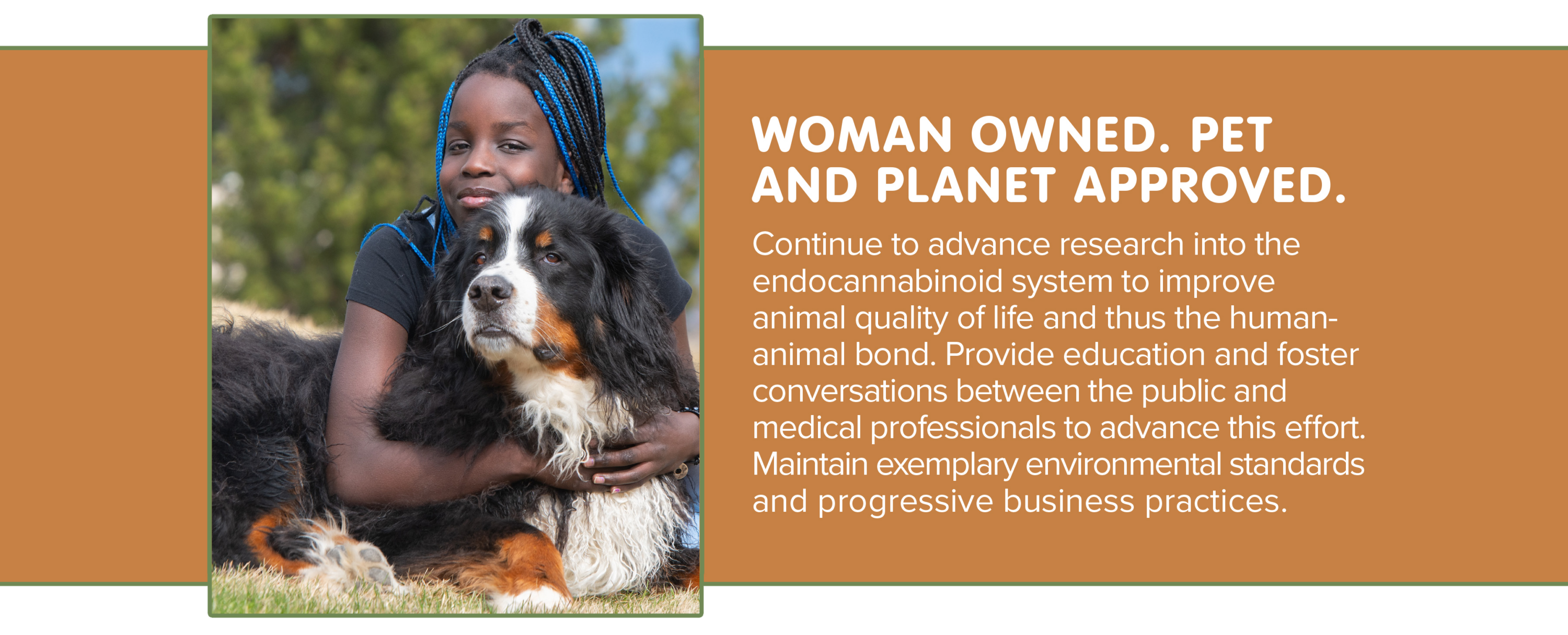How to Help Your Dog Age Well
As a proud dog parent, you want the absolute best for your lovable four-legged child. Unfortunately, even the most lively and youthful canines aren’t immune to the natural effects of aging. Just like humans, dogs begin to slow down and weaken as they age, resulting in stiffness and reduced mobility. In order to mitigate these age-related symptoms and keep your pup in great condition throughout every stage of his or her life, it’s imperative to understand how a canine’s needs change over time and take steps to meet them.
At Canna Companion, we’re passionate about providing pet parents with all the knowledge and resources they need to support the health and happiness of their dogs and cats through cannabis-based supplementation. That’s why we developed Canna Companion, a unique blend of hemp that is specifically designed to enhance the supportive benefits of the cannabis plant while minimizing the high-inducing concentrations of THC. Today, to help you attain optimal health, comfort and care for your pet, we’ll be teaching you about the best ways to help your dog age well.
What Changes Do Dogs Experience as They Age?
Joint/Mobility Issues
It’s important to remember that a canine’s joints naturally degenerate as they age, making it significantly harder for them to run, jump and play like they used to. In more severe cases, a dog’s joint discomfort can become so debilitating it prevents them from navigating throughout the house or hopping up into your vehicle. If you notice your aging dog is reluctant to participate in daily physical activities, like climbing up steps or getting into your bed for pets, then be sure to take them to your veterinarian for a checkup as soon as possible. The doctor can assess whether they’re experiencing joint issues and discuss a variety of options to get them on their feet again.
Decreased Immunity
Regrettably, your pup’s immune system begins to weaken with old age as well. As you know, your dog’s natural defense system plays an important role in protecting them from a wide variety of insults. Older dogs are less able to manage normal daily insults to their immune systems and minor problems become larger ones quickly. Call your veterinarian if your dog seems tired, asks to use the bathroom more often, or injures herself. Once it is determined your geriatric dog’s immune system is just getting a bit older, it’s time to consider pet-friendly supplements that support a healthy immune system.
Behavioral Problems
According to Vetstreet, geriatric dogs can become more likely to exhibit distress when they experience uncomfortable situations or stimuli, including when they’re left alone or are surprised by loud noises (like fireworks or thunder). And because a canine’s senses dull with old age, their response to these stressful situations becomes less and less predictable. Some older dogs that are startled may even respond with aggressive or destructive behaviors. As a result, we highly encourage you to reach out to your veterinarian if you notice your dog developing behavioral problems in their later years for additional advice and support.
How Can I Help My Dog Age Better?
-
Maintain Their Physical Health
Regardless of your dog’s age or condition, it’s imperative to keep their body in excellent shape. Remember, obesity increases the amount of stress your dog’s joints will have to endure each day and subjects them to additional health risks, reducing quality of life. Establishing daily exercise routines and a healthy diet (paired with regular veterinarian visits) is the best way to prevent these problems and ensure your canine stays active and lively. Just remember your best friend is older and may not be able to run a 5K anymore, but a stroll in the park is a perfect doggy day.
-
Make Your Home Easier to Traverse
Once again, joint discomfort can make it tough for your dog to navigate around your home effectively, especially when paired with vision loss (another common age-related change in senior dogs). Fortunately, you can safeguard your pet from many of these mobility troubles by making a few small alterations to your home. For example, try to keep all of the supplies your dog needs (including his or her food, water and sleeping space) on one floor of your home to help them avoid strenuous climbs up steps. This will help to prevent daily joint discomfort and potential injuries if your dog stumbles due to vision or coordination issues.
-
Talk to Your Vet About Health Supplements for Older Dogs
There are several pet supplements on the market that can be used to help your dog transition smoothly into his or her later years. For example, our Canna Companion supplement offers a number of invaluable benefits for aging canines. Not only does this formulation help to support your pup’s immune system, keeping their natural defenses in top form at any age, but it also mitigates joint discomfort associated with normal daily exercise and activity while supporting general joint health, enabling your dog to move around the house and play without experiencing discomfort. Last but not least, Canna Companion has been proven to encourage a normal calm behavior, preventing temporary and situational anxieties from negatively affecting your canine as he or she grows older. Be sure to chat with your veterinarian to gain a better grasp on which supplements will best suit the needs of your pet.
Contact Canna Companion Today
Interested in learning more about Canna Companion or our industry-leading cannabis products for pets? Then be sure to call or message us! We would love to hear from you and discuss what we can do to help your pet attain a higher level of health and comfort throughout each phase of life. Also, please feel free to reach out if you have any additional questions about dog mobility or helping old dogs with cannabis-based supplements. We look forward to hearing from you soon.



